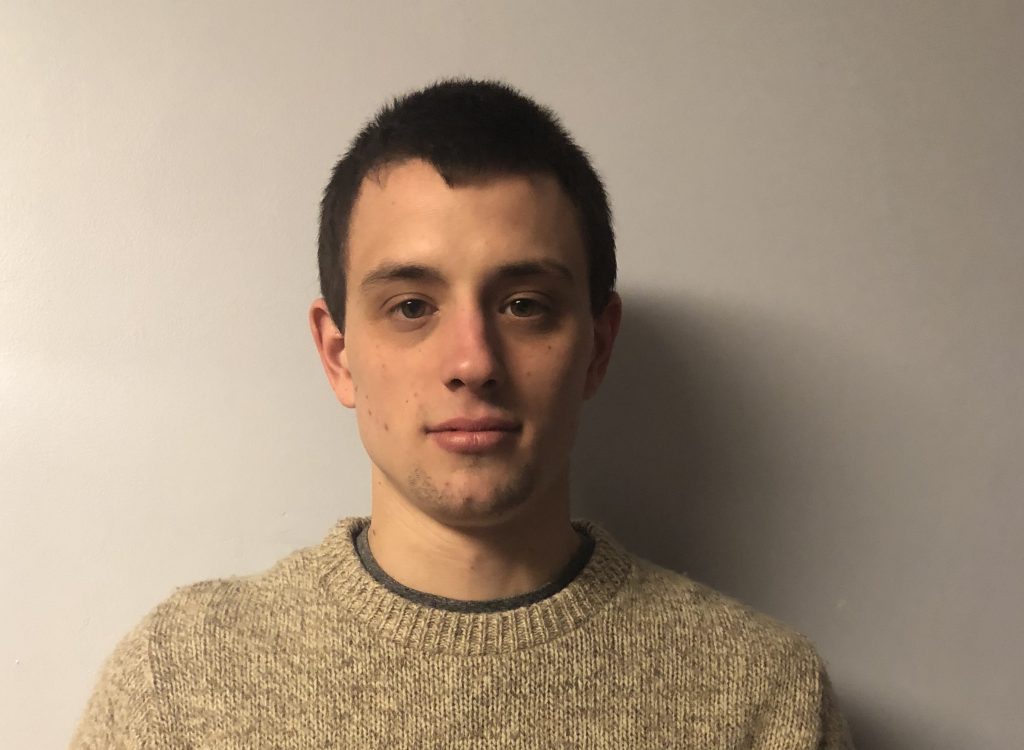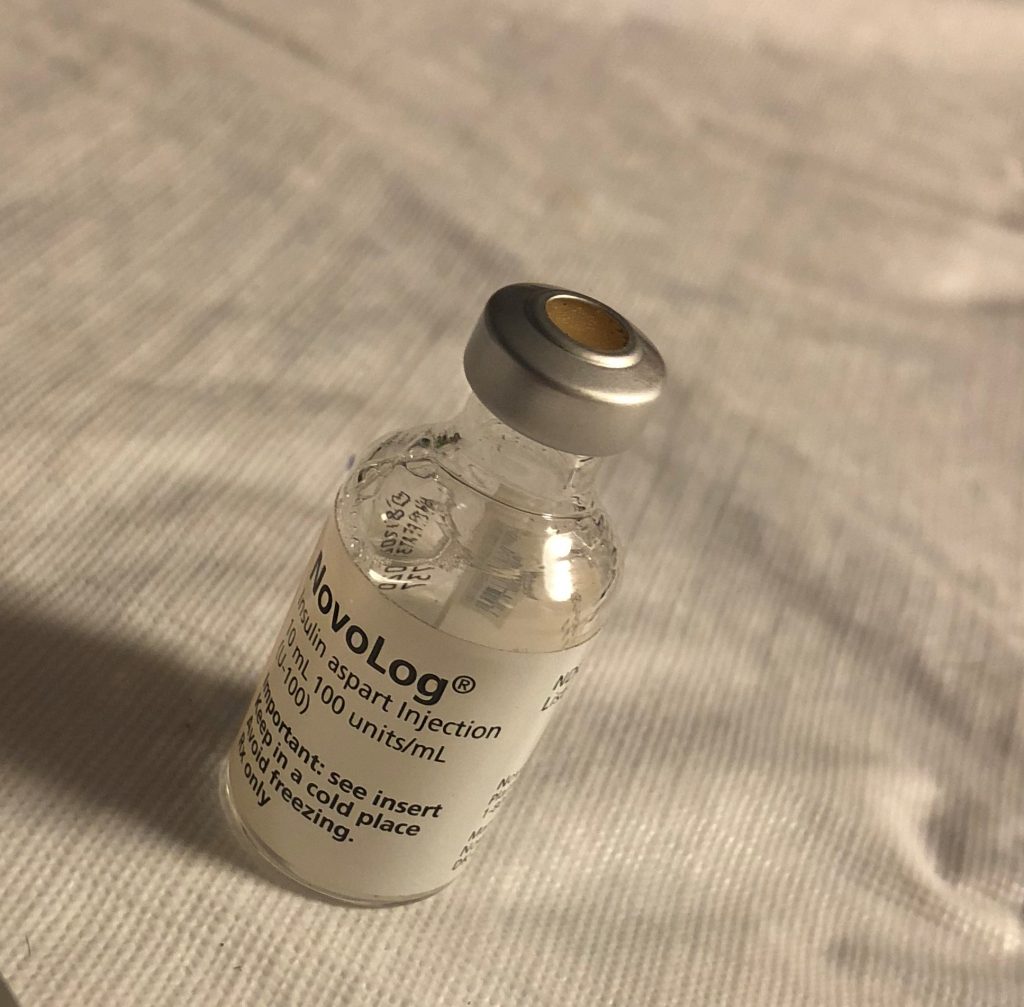Imagine being an 8-year-old kid and being so thirsty that you can’t stop drinking water and it physically hurts to drink that much water. Well, this is what happened to a friend of mine, Zach Littell. His story is much different than mine. In terms of race and able-bodiedness, Zach has gone through life with being Type 1 Diabetic and has faced many challenges in his job to move up because of his diabetes.

I had the pleasure to see Zach on March 1st when my husband invited him out to eat dinner with us and catch up. We hadn’t seen Zach since our wedding day, so it was nice to get together to talk. As we talked, I could hear a growing frustration in his voice when he started to talk about his diabetes and how it has been impacting his life differently.
Zach has Type 1 diabetes which is also referred to as juvenile diabetes where it most often happens in kids and where there is a complete absence of insulin in the body. This is often confused with Type 2 diabetes where it can be hereditary or brought on by different medications where it hurts your pancreas and causes trouble with your pancreas producing insulin. It can also be where you have an unhealthy diet, excess weight, and a lack of exercise and don’t take care of your body so your pancreas cannot produce enough insulin to keep you going. Zach also described Type 2 diabetes to me where he said, “Type 2 diabetes, there are two types of type 2 diabetes, there’s the first kind which is hereditary and there’s the second kind when you get fat and don’t take care of yourself or don’t have to technically be fat or you just don’t take care of yourself, you eat too much sugar and then your body can’t produce enough insulin.” (09:30)
I was curious to hear about Zach’s frustration with his diabetes since he’s had it for 15 years now. Zach works for FedEx fixing tractor trailers and he also works for UPS as an hourly warehouse worker under the union Teamsters where he gets his great health insurance. He explained to me that he cannot move up in his job unless he has a CDL (commercial drivers license) and he cannot get one because of his diabetes. While we were talking Zach said, “I talked to my doctor and she said that she would clear me to pass a DOT physical so I can get a CDL but said I can’t go low as much as I do because I go low fairly often but my body handles lows a lot better than it does being high, like I’ve talked to other people and they say: ‘oh when I’m at 50 I can’t—I can’t walk, can’t move, I just sit there and see stars and stuff.’ And that doesn’t affect me in that way. I’ve gone down to below 20 before and the meter actually says below 20 because it’s too low for it to read and most people pass out and die if they get their blood sugar that low and I was like—70%-60% there, and I was able to get myself food and eat and everything” (03:46). From Zach’s viewpoint, he believes that he handles his diabetes better than others and feels he would be okay doing the job.
I then asked him, “So you’re thinking maybe even the way that the CDL is tested is maybe not right or should be changed?” (04:20). He responded with saying, “I think it just depends on the individual and for sure yes I need my blood sugar to be better but it is extremely hard to get it better because right now, I work 60 hours and I don’t exercise but if I could get a job and only work 40 hours a week then I would have time to exercise” (04:20). Zach is unable to get his CDL (commercial driver’s license) because his diabetes has restricted him to do so.
Zach’s job at UPS gives him amazing health insurance to cover his medications and medical equipment for his diabetes. At one point, Zach pulled out his diabetes kit and picked up his insulin and said, “$120” (12:38). He then picked up his test strips and said, “Test strips. Each one of these costs $1.75. They can only be used once. I check my blood 8 to 12 times a day so that’s almost 20 to 25 bucks a day, but I’m fortunate enough that I go fill my 3-month prescriptions and it’s like $5,000 and I pay $0 because I have great health insurance” (12:38). That was a powerful moment because the harsh reality is that not many people are fortunate enough to have this great of health insurance. Even if someone has semi-good health insurance, they still may be paying thousands for diabetic medication and equipment they need in order to survive.

In addition to this, Zach talks about a very big problem that is happening right now in our society. He goes on to say, “Pharmaceutical companies take extreme advantage of people with diseases that require them to go to the pharmacy and buy drugs so they can live, so the pharmaceutical companies jack the price up astronomically high and they do it because they can and no one’s stopping them. There’s only a couple manufacturers that produce insulin so they have a monopoly or oligopoly and they have a captive audience so they can charge whatever they want” (11:56). Pharmaceutical companies try to take advantage of people because this medication is a necessity for the survival of diabetics.

In my class: Nazi-Occupied Europe & The Holocaust, we talked in our lectures about the T4 Program. It was also called the T4 Euthanasia Program, camouflaged by the Nazis to kill incurably, physically or mentally disabled, emotionally distraught, and elderly people. These people were murdered by way of gas delivered by specially-outfitted vans. This was done before the liquidation of the Jews began. The Nazis essentially experimented with both how to kill large numbers of people most efficiently and how the general public (and the people doing the killing) would react (Bergerson, Levy NOE, SP2019).
As I was talking to Zach, I asked him, “Before you were diagnosed, was there ever a time that you thought you were diabetic?” (14:46). He responded by telling me a lot of interesting stories from his childhood. One of the stories that he told me went like this: “I didn’t even know what diabetes was at that age but I remember like two days before I got diagnosed we came back from a barbecue place, I got home and I drank so much water because I was so thirsty that my stomach like it painfully hurt like it hurt, it really hurt, and the reason this happens with diabetes is because the water won’t go into your cells without insulin so the water goes straight through you instead of going into your cells and your cells are so dehydrated so you’re just peeing it out two minutes later” (17:13). This story really stuck out to me because I learned that there are more symptoms of diabetes than just having low blood sugar and fainting. Other symptoms of diabetes that many people do not know about include excessive thirst, frequent urination, sudden weight loss, and weakness. Many people in our society don’t have a clear understanding of what diabetes truly is and the symptoms that come along with it. We as a society need to be more informative so we are able to help others if we notice these symptoms.
Another story that really surprised me was when Zach said, “Oh another funny story, this was the summer that I got diagnosed and I woke up in the middle of the night and I really had to pee, so I went into the bathroom and could not find the toilet, the toilet was not there, so I climbed out the window onto the roof and the roof is pretty flat so its something you can walk on, so I climbed to the edge of the roof and I peed off the end of the roof. It turned out that my blood sugar was really, really, really high” (19:04). To be an 8 or 9-year-old child and have your blood sugar so high that you hallucinate that your toilet isn’t there and your only option is to urinate off the roof is unbelievable. After being diagnosed, Zach then knew the reason why this happened. He started taking the medication that was prescribed to him and was able to not have these hallucinations anymore. Zach now knows as an adult how to take his diabetes medication when needed responsibly. This is why not being able to move up in a job, because of his diabetes, frustrates him so much because he knows that he is capable of doing the job and take care of his diabetes.
Before Zach left, I asked him, “Do you fear that UPS will ever take away your insurance?”(20:15), and this is a really important question because if he doesn’t have this amazing insurance then he would have to be ridiculous amounts of money to be able to get the medication he needs to live. Zach not being able to move up in his job because he can’t get a CDL is worrisome because he feels trapped. He is trying to find a job that he likes and can succeed in but will also cover his diabetes equipment and medication. Zach answered by saying, “No because UPS is Union and Teamsters is the largest labor union in North America so they have a substantial amount of poll plus UPS is a good company to work for and they take excellent care of their employees so you have a company that wants to take care of its employees in a union that wants to make sure its member are happy so I really don’t fear that”(20:17). Zach is the type of person that is a very hard worker and knows that he is very fortunate to have people around him that support him and love him like his family and friends and will keep encouraging him throughout his journey in life as a diabetic.
